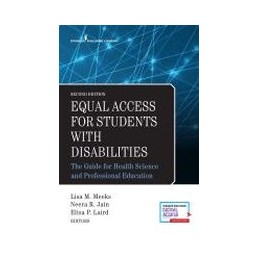- Reduced price

Order to parcel locker

easy pay


 Delivery policy
Delivery policy
Choose Paczkomat Inpost, Orlen Paczka, DHL, DPD or Poczta Polska. Click for more details
 Security policy
Security policy
Pay with a quick bank transfer, payment card or cash on delivery. Click for more details
 Return policy
Return policy
If you are a consumer, you can return the goods within 14 days. Click for more details
New chapters and updates on topics including technical standards; a new appendix to guide faculty communication; and revised advice throughout, provide faculty, student affairs and disability professionals with the most up-to-date practices. The text delivers updated legal guidance and case references, assistance in benchmarking office policies and practices, new case studies, and a review chapter for teaching and assessing learning. New examples impart the best decision-making practices, describe what to do when things go awry, and discuss how to avoid problems by implementing strong accessibility-focused policies. Written by noted educators and practitioners at prestigious health science schools, this text is backed by years of practice and expertise. It is written in an easy-to-read, engaging manner that makes disability inclusion and disability law accessible to all.
New to the Second Edition::Data sheet
